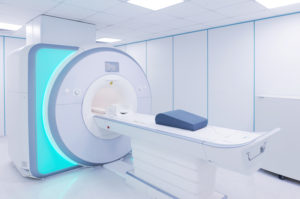Study: Kidney Disease Patients at Risk of Gadolinium Dye Injuries

Researchers from the renowned Mayo Clinic have published a study that suggests patients with chronic kidney disease may be at risk of an acute kidney injury when exposed to gadolinium dye. The acute kidney injury may become life-threatening and may require dialysis treatment. Gadolinium dye, which is used in MRIs, has been under fire lately because of the potential to cause gadolinium deposition disease. This severe complication has sparked a number of lawsuits.
Risk of post-contrast acute kidney injuries
The recent research regarding kidney injuries was published in the November issue of the medical journal, Diagnostic and Interventional Radiology. The researchers analyzed data from 68 patients with chronic kidney disease. All of the patients had rental artery stent replacement, during which gadolinium contrast agents were used.
The data revealed that 14.7% of the patients suffered an acute kidney injury following their exposure to gadolinium dye. The researchers measured specific markers of kidney function to evaluate the potential risk. One measure, called the glomerular filtration rate (GFR), indicates how well the kidneys are functioning. This analysis revealed that there is a 9% decline in the risk of acute kidney injuries for every one-point improvement in kidney function. Risk can be further managed through prehydration.
About gadolinium contrast dye
Contrast agents are used during some imaging tests to enhance the clarity of the medical images. In some magnetic resonance imaging (MRI) procedures, doctors recommend the use of gadolinium-based contrast dye. It’s important for all patients to inform the doctor or radiology technologist of any pre-existing medical problems, especially kidney disease.
Patients with kidney disease may need to have a blood test to assess kidney function before undergoing an MRI with contrast dye. The doctor may reconsider the use of gadolinium-based contrast dye, or recommend using the lowest possible dose of the contrast agent. Additionally, the doctor may recommend hemodialysis to filter the blood immediately after the patient has the MRI.
Patients with kidney disease can undergo a regular MRI, without contrast dye, with no special concerns.
Specific post-contrast kidney injuries
One of the specific kidney injuries that may occur after exposure to gadolinium contrast dye is nephrogenic systemic fibrosis (NSF). NSF hasn’t been reported in patients with normal kidney function or mild kidney damage. It sometimes may affect patients with advanced chronic kidney disease. NSF can be debilitating and life-threatening.
Another specific injury that may occur is contrast-induced nephropathy (CIN). The risk of CIN in chronic kidney disease patients increases if certain comorbidities are present, such as diabetes or heart and blood vessel problems.
Other MRI contrast dye reactions listed in lawsuits
There are a growing number of lawsuits being filed against the manufacturers of gadolinium contrast dye. These complaints allege that the patients and doctors were not given adequate warnings about the potential risks of the dye. Specifically, patients allege they developed gadolinium deposition disease, which may occur in people with or without chronic kidney disease.
Gadolinium deposition disease has been linked to a number of debilitating complications, including persistent headaches, brain fog, memory problems, pins and needles sensations, and severe pain in the bones and joints. These symptoms may develop hours or weeks after the exposure to the contrast dye, and it’s thought that they may persist for years afterward.
Additional Resources:
- Diagnostic and Interventional Radiology, Nephrotoxicity of gadolinium-based contrast in the setting of renal artery intervention: retrospective analysis with 10-year follow-up, http://www.dirjournal.org/eng/makale/1957/100/Full-Text
- Mayo Clinic,
MRI: Is gadolinium safe for people with kidney problems? https://www.mayoclinic.org/diseases-conditions/chronic-kidney-disease/expert-answers/gadolinium/faq-20057772

